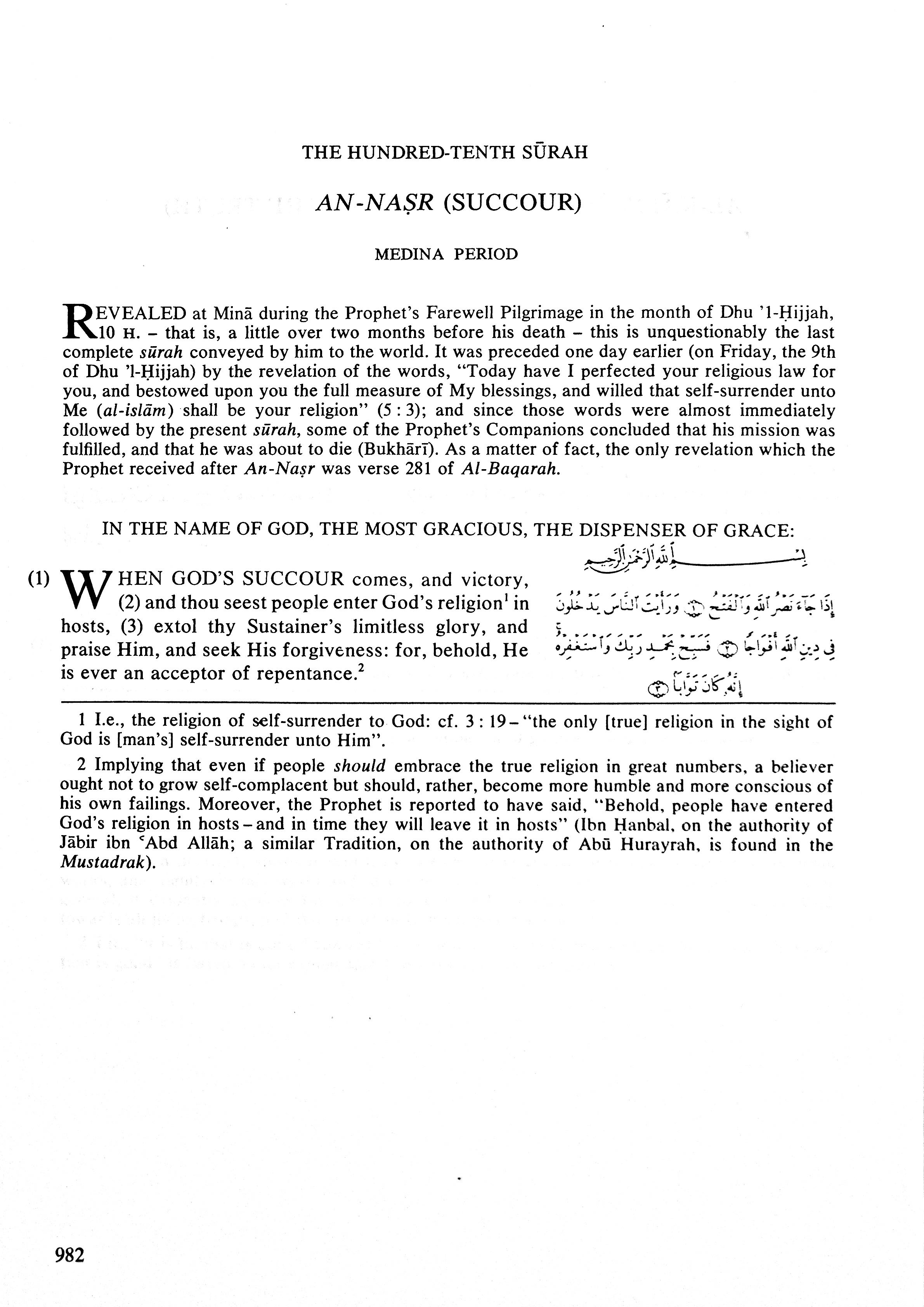Muhammad Asad, The Message of the Qur’ān; Translated and Explained by Muhammad Asad (1980)
An-Naṣr (Succour)
Revealed at Minā during the Prophet’s Farewell Pilgrimage in the month of Dhu ’l-Ḥijjah, 10 H. – that is, a little over two months before his death – this is unquestionably the last complete sūrah conveyed by him to the world. It was preceded one day earlier (on Friday, the 9th of Dhu ’l-Ḥijjah) by the revelation of the words, “Today have I perfected your religious law for you, and bestowed upon you the full measure of My blessings, and willed that self-surrender unto Me (al-islām) shall be your religion” (5:3); and since those words were almost immediately followed by the present surah, some of the Prophet’s Companions concluded that his mission was fulfilled, and that he was about to die (Bukhārī). As a matter of fact, the only revelation which the Prophet received after An-Naṣr was verse 281 of Al-Baqarah.
When God’s Succour comes, and victory, (2) and thou seest people enter God’s religion 1 in hosts, (3) extol thy Sustainer’s limitless glory, and praise Him, and seek His forgiveness: for, behold, He is ever an acceptor of repentance.2
1 I.e., the religion of self-surrender to God: cf. 3:19 – “the only [true] religion in the sight of God is [man’s] self-surrender unto Him”.
2 Implying that even if people should embrace the true religion in great numbers, a believer ought not to grow self-complacent but should, rather, become more humble and more conscious of his own failings. Moreover, the Prophet is reported to have said, “Behold, people have entered God’s religion in hosts – and in time they will leave it in hosts” (Ibn Ḥanbal. on the authority of Jābir ibn ʿAbd Allāh; a similar Tradition, on the authority of Abū Hurayrah, is found in the Mustadrak).
